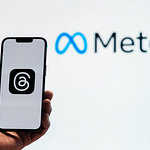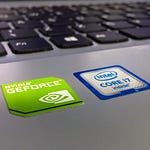In this episode, we discuss the softening consumer spending trends, inflation being higher than the rate the Fed is targeting, and Tesla’s ChatGPT moment in self-driving.
The episode is based on yesterday's newsletter which is available on Substack.
Cautious Outlook
Succinct Summary: Consumer spending trends softened over the course of the first quarter and appear to have remained more subdued in April and May. Home Depot was spooked enough by their underperformance that they reduced guidance for the full year. They now see comp sales declining by 2%-5%. That said, spending and inflation are still resilient. The Fe…
A transcript of this podcast, with relevant images and quotes, is available for all subscribers after the show notes below. Our podcast is available on Apple Podcasts, Spotify, Google Podcasts, YouTube, and Amazon Music.
Show Notes
00:00:00 Introduction
00:00:07 Softening Trends
00:01:50 Inflation Still High
00:04:00 Tesla and AI
00:07:33 The State of the Supply Chains
00:08:30 Nuggets of Wisdom
00:09:12 Conclusion
Transcript
Introduction
[00:00:00] Scott: Welcome everyone to a new episode of The Transcript podcast. You've got me, Scott Krisiloff. I'm editor of The Transcript, along with Erick Mokaya, who's our lead author.
Softening Trends
We sent out a new issue of the newsletter yesterday, and what we saw last week were some softening trends in the economy, especially among the consumer. I think Home Depot made headlines for bringing down their expectations for spend, and that wasn't terribly surprising because we know that housing markets are among the slower areas of the economy. Also, Target and Walmart had some negative thoughts on what the consumer was doing in March and April, saw impact to the consumer from the banking crisis that happened in March as well. But at the same time saw stabilization or there were a number of companies that were talking about stabilization and people still spending, consumers still spending. So even if things may be softening a bit with the consumer it seems like overall spending is still fairly healthy. Erick, any thoughts?
[00:00:56] Mokaya: I think that's the same thing I picked up. For a while now it's been a bit pretty balanced in terms of negative and positive comments we get in earnings calls, but it felt slightly negative last week. Even Walmart with the 7% comps up on the US business, I think they still had quite a lot of commentary in their earnings that was more like, okay the consumer is pretty pressured, especially the low-income one. The high income is starting to feel the pressure and making adjustments in that regard. Spending mix has shifted, but overall the consumer is still resilient and I think that's been the surprise. I think MasterCard had the same kind of comments in terms of spending and Visa also. So spending is holding up pretty well, but the commentary felt slightly negative, slightly that's what I would say because there's still a lot of positive commentary. But does it tilt your perception in terms of how we are going towards maybe the second half of the year, which starts next month actually in a month or two?
Inflation Still High
[00:01:50] Scott: Not yet because honestly, like the flip side of the consumer slowing is inflation. And while inflation is definitely slower than it was, it still seems like it's higher than the 2% underlying rate that the Fed is trying to get inflation to and doesn't really seem to be trending to the two, seems to be trending to a three or four, something like that. And I think the Fed is very serious about getting it to the two. So the two quotes that we picked up from Jerome Powell and James Bullard last week from the Fed were both about economic data coming in stronger than expected, and interest rates being higher than previously anticipated. And so even if they're pausing here they're signaling that they may start raising again. I guess that is what is more negative to me about the outlook for the back half of the year is if they're still fighting inflation. If inflation isn't coming down, that's gonna be bad for markets.
[00:02:44] Mokaya: I think one of the things that the Fed talked about, I think in the last press conference, was about the banking crisis being a bit of, they could have raised rates, save for the banking crisis, but the banking crisis feels like it's removed now. Last month it was like the crisis… the crisis. But now it's so far behind us now, but still, there's a lot of reflections on what exactly went wrong and how to prevent it. I mean there are a couple of quotes there we had about how this was unprecedented in terms of magnitude, in terms of the regulatory requirements that may be forthcoming to manage crisis risk as banks. So I think that's way behind us now. I feel from my perspective, it may not factor into the next press at least the Fed meeting in the next instance. So I think now it's about where, at what point should they stop raising because they've conquered inflation. I think that's where everyone is watching and so far from our earnings calls readings, inflation has stepped down a bit, but not to the level, as you said where the Fed is most comfortable that okay we've reached our goal and now we can at least like pivot completely away. So I think that's what we get from the earnings calls we've had so far. And I guess commentary is pretty tilted, slightly to the negative, slightly, not so much.
Tesla and AI
Any other things that you may have picked up in earnings this week? I mean there's a lot of talk of AI and OpenAI’s Sam Waltman was actually in Congress showing them the power of AI and with a lot of worries on what the future looks like with AI. What's your take on that, especially the Tesla quote where they want to have the ChatGPT moment soon?
[00:04:19] Scott: Yeah, I think it was interesting to see Sam testifying before Congress last week, and obviously got a ton of coverage. It was everywhere, Sam testifying. I think the quotes that stood out to me in AI this week were the Chesky quote, talking about 130 years ago, only a few people knew how to use the camera. But now everyone can use the camera and there are a lot more photographs. And it's the same sort of thing with coding here is what large language models could unlock, is just the ability for all of us to develop software more easily, basically. And so there would be a lot more software in the world. I thought that was a really big quote. And then also Elon talking to your point about Tesla and how close they are with self-driving and that they're really…his quote was, Tesla is going to play an important role in AI and AGI. So really positioning Tesla as his AI company, and that there'll be a ChatGPT moment for self-driving maybe if not this year, I'd say no later than next year. Which is something that you and I have been talking about this year in podcasts, is that everybody's looking at large language models right now and there's a very real chance we'll have self-driving as well within the next 18 months. And that would just be explosive in terms of the mindset towards AI. So those are both pretty big. And the note on that is if Tesla's an AI company it's not really viewed as an AI company, right? Nvidia and Microsoft are really viewed as the only public market plays. If Tesla becomes viewed as an AI company off to the races, especially with Elon there and not CEO of Twitter anymore, there are catalysts coming for Tesla potentially.
[00:05:59] Mokaya: And the term may be pretty huge if they have an AI company at the end of the day, but the two quotes from I think JP Morgan is also very keen on positioning themselves as not behind in terms of AI. I think it's pretty interesting when the biggest bank in the US also is leveraging AI to make themselves a bit more efficient in the way they do business. And also the quote from Google for me, I was struck by the fact that they have a chatGPT kind of version for enterprise called Vertex AI because it seems like there's a bit of distinct preferences in terms of what the enterprise consumer wants and what the individual consumer wants. And then, the enterprise consumer has very specific needs that they want. They want their data to be localized. They don't want it to be used with everyone. And I feel like there's a huge play in terms of how companies position themselves there. I know Microsoft has been very big on b2b. They're quite well positioned there. I guess they're leveraging also chatGPT and all these tools to be able to deliver to their consumers really good value. And it was good to see Google is not that far behind in terms of also wanting to deliver some of these products to enterprise generally.
So something to watch in terms of AI and all, Nvidia is reporting earnings this week. So it's like the poster child for the AI moment. So it's going to be very interesting to see how many times they actually mention the word AI, and secondly also what exactly they're doing in the AI field so far. My bet is that they'll keep exploding, at least for this year. It seems like anything that touches on AI gets to explode in the positive or negative sense like Chegg did in the other sense.
The State of the Supply Chains
Anything else that you may have picked in earnings this week? Housing is there something on housing?
[00:07:41] Scott: Yeah, the comments were mostly positive on housing, right? Actually, it's fairly stable. I think one other thing just on supply chains maybe, is that supply chains continue to heal, really are nearly fully healed. But the one data point that really stuck out to me is that car prices are back below MSRP now which auto supply chains had been the tightest and we know the semiconductors around auto supplies were the tightest of any of the semiconductors. And the fact that auto prices are below MSRP suggests that the tightness in that market has healed itself. And so that's a big indicator in terms of where supply chains are today.
[00:08:21] Mokaya: Yeah, I think the general commentary is also from earnings is that supply chains seem to be back to normal. I think now companies, even Walmart also commented on the same.
Nuggets of Wisdom
Maybe two things that stood out at the end are the nuggets of wisdom about generational change being a risk to brands and also being an entrepreneur is hard. I listened to both. I read both interviews by Daniel Elk and Brian Chesky. I really look forward to one of these days when we'll be able to host some CEOs on our platform to be able to discuss all these things with them in a bit more detail. I think it's a potential area of growth for us in the future. So I think that's something you've expressed for a long time. And I think I second that, and if any of our listeners is in touch they can be able to help us get in touch with some of these CEOs to bring them on board to discuss more from earnings calls and some of the takeaways that they have, some of the nuggets of wisdom that they have for us also. So I think that's something I would say that we are keen on.
[00:09:12] Scott: I would agree.
Conclusion
[00:09:12] Mokaya: So looking forward to more. So thank you for joining us this week on The Transcript podcast. Looking forward again to another week of earnings. As I said, Nvidia is reporting, so we'll be keeping an eye on that. And there's a JP Morgan tech conference that's happening this week. Lots of companies report there to present. So we'll be keeping you in touch in terms of the key quotes of earnings calls. So thank you so much and see you again next week.












